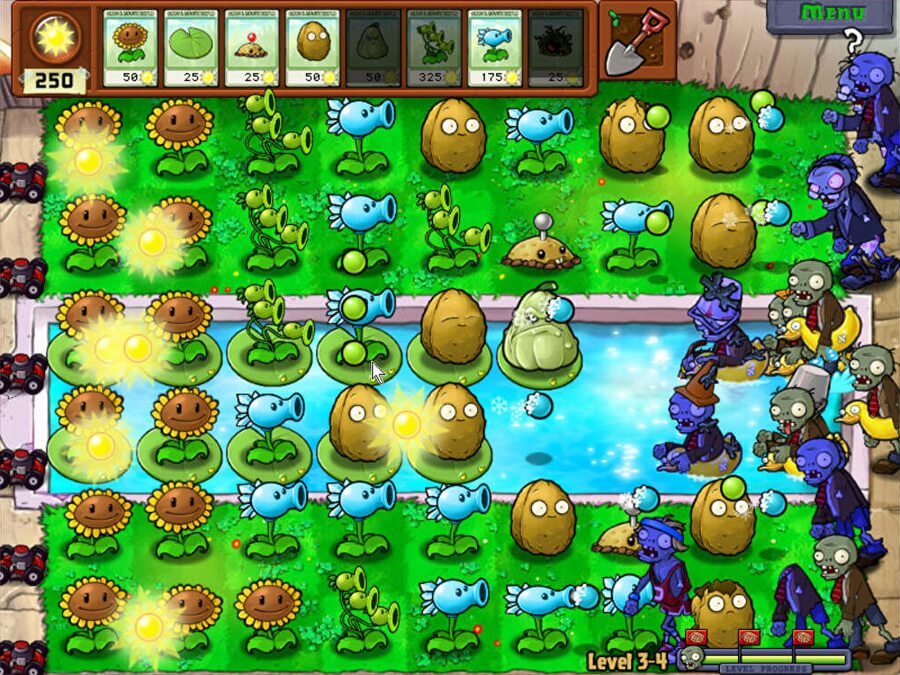Is a longer game a better game? Dive into my world of too many games to play and let me tell you exactly why you, as a game developer, should streamline your games and tell your story to-the-point.
If I’m Nintendo, am I not better off making a 45-hour Xenoblade Chronicles and a sequel instead of a 90-hour one? Or making the next Zelda only 30 hours long instead of 60 hours, so that players can also play the new 15-hour Super Mario and 15-hour Mario Kart?
These are really simplistic examples, but I think you know what I mean.
The gaming industry is a vast, diverse landscape, with titles ranging from bite-sized indie games to sprawling 90-hour epics. But what’s better? Is there a perfect length for a game? Should you get one hour of playtime for each dollar spent, as some say?
I’ll tell you upfront: We won’t arrive at a specific number of hours your game should span or at a hours-per-dollar value.
But we’ll delve into the world of game length, discuss the advantages and disadvantages of both short and long games and conclude — spoiler alert! — that developers should try to deliver a memorable experience regardless of playtime.
Persona 5 Royal
Persona 5 Royal is a game that is known for being extremely long, with the average main-story playthrough taking 101 hours according to https://howlongtobeat.com (as of today). I’m pretty sure it is the longest game I have ever played (not counting endless games like Diablo III or Hearthstone), and I’m a fan of JRPGs!
While many fans of the game appreciate the depth and complexity that comes with such an extensive experience, others have criticised the game for being unnecessarily long. I have to say that I would probably join the latter group.

See, I enjoyed the game a lot, giving it a 5-star review and having been quite addicted to the gameplay at times. But it took me about three months to finish it! That’s not normal. My stack of games I want to play has grown even further since I started P5R, and to be honest, there were several moments where I would have liked to start the next game instead of going back to one of the lengthy dungeons, hanging out with confidants I’m not particularly attached to or learning at the school library to increase my social stats once again.
I mean, I get it: Persona 5 Royal needs its time for storytelling and the development of a large cast of characters. The game has a lot of cutscenes, but there’s also a lot of compelling dialogue with choices that matter.

However, I’m quite sure the game could have been, like, 25% shorter without really sacrificing anything. It would still have been nearly perfect. In my view, it’s at least worth considering whether a game of this complexity and length is necessary, or if there would have been ways to streamline the experience. For example, Mementos could have been a lot shorter. I was never looking forward to returning there.
And why was the school building that large? Why were the palace deadlines so generous, adding many in-game days where nothing happened storywise?
Just balance the activity bonuses around fewer days then! Why were there confidant ranks with no ability learnt? Just combine them with the next one!
Illusion of Gaia
In contrast to Persona 5 Royal, the SNES classic Illusion of Gaia manages to deliver an epic adventure in just 13.5 hours.

The key difference between the two games is their approach to storytelling.
Persona 5 Royal prioritises complexity, with a lengthy narrative and a large cast of characters that each have their own story arcs.
Illusion of Gaia, on the other hand, takes a more streamlined approach. The plot — a boy setting out to save the world from ancient evil — is relatively straightforward too. But even so, the game manages to touch on philosophical themes such as loss, death and the nature of humanity in a way that is emotionally resonant to the extreme. There are next to no unnecessary filler sections, it seems; the pacing is just perfect, with each new story beat building upon the previous ones to create a cohesive, maybe even life-changing experience that does not feel rushed at all.
In 13.5 hours, this game also features a relatively diverse cast of characters and some very(!) interesting locations to explore.

Illusion of Gaia is one of my favourite games of all time — alongside Terranigma, of course —, and it proves that quality is not measured in hours played.
Other Examples
There are more examples of long and short games that easily come to mind when discussing game length:
Long Games
The following long games are fun, sure, but at times, you might get the feeling that you’re playing filler content. It’s disputable, but I’m sure there would have been ways to condense the gaming experience in …
- the Final Fantasy series.
- the Fire Emblem series,
- the Octopath Traveler series,
- the Tales-of series – especially Zestiria — and
- the Xenoblade Chronicles series.
Just as a thought experiment: Would you prefer playing a 50-hour Fire Emblem or two 25-hour ones? I’d certainly take the latter format! The second game could be a direct sequel, I wouldn’t care, but at least I’d have the chance to play something else inbetween the instalments.
Short Games
Here are a few games that are relatively short, but in my opinion, you still look back onto a satisfying experience while the credits roll:
- Gato Roboto,
- the Luigi’s Mansion series,
- Plants vs. Zombies,
- the Shantae series and
- the main-line Super Mario titles.
You don’t really want to play a 50-hour Luigi’s Mansion anyway, do you? And, you know, the Shantae games seem to always have just the perfect length when (nearly) 100%ed.
Lengthy vs. varied vs. replayable
An alternative approach to extending playtime other than adding filler content to the story is to offer players more activities to engage in besides and/or beyond the main quest.
For example, Pokémon games tend to have a rather short main quest, but players can spend countless hours catching and training different Pokémon and engaging in battles with other players. These activities not only offer additional playtime but also add depth and variety to the overall experience.
Plants vs. Zombies offers, alternatively, a number of additional game modes that are completely different from the tower-defense gameplay of the main one.

Another approach is to add replayability to the game by incorporating randomised elements. Games like Diablo III, for instance, offer character customisation as well as procedurally generated maps with a pool of possible events, challenges and rewards.

All three approaches allow enthusiastic players to play the games for many hours more, while players who seek variety can still complete the game in a reasonable amount of time and move on to the next. That way, designers can create games that appeal to a wider range of players and provide a satisfying experience for everyone, and in my opinion, they should respect the preferences of both camps.
Make shorter Games!
While adding side content and randomised elements can certainly extend the playtime of a game in a good way, there’s this other approach that may sound strange, but … why not simply make games shorter? Polish some more, then wrap up development early and start the next project? There’s this ‘agility’ thing going on in businesses, and I think you can do that with game projects too!
A lengthy game can lead to players feeling overwhelmed, burnt out or simply losing interest before they reach the end. Do you, as a developer, really want that? Even less if you’re the writer of the story that many players don’t see the conclusion of!
Shorter games, on the other hand, can provide a more focussed and streamlined experience that may be, all in all, more appealing, leading to better reviews and more games sold.
So, let’s make more games accessible to players with busy schedules! Just because you’re an adult with a full-time job, hobbys and responsibilities doesn’t mean you don’t want to play serious games. You don’t want to be restricted to casual games, but experience epic stories — just not over the course of 60 hours!
Think of it this way: A Netflix series with multiple seasons may allow for a complex story with lots of characters, but that doesn’t mean there aren’t any masterpiece films, right? So, why not make more ‘film’ games and fewer ‘series’ games?
Um, Wildsilver is how long again …?
Well, what about Wildsilver, you ask? Doesn’t it have a playtime of approximately 20 hours?
Yes. I think it does.
Despite all the talk about short games, I believe that Wildsilver, even being an indie game made by one person, needs 20 hours to tell its story and provide sufficiently deep JRPG mechanics. I do hope that it manages to strike a perfect balance between exploration, turn-based combat and cutscenes by giving all three components the time they need to establish their pattern and develop into gameplay with a sense of familiarity. I might have been able to make the game shorter, but not by much. I tried to remove content, I promise.
On the other hand, even if you’re a long-and-epic-story enthusiast, Wildsilver should still be a satisfying experience at less than the 60 hours you’d normally like your games to take.
Conclusion
Ultimately, the perfect game length is subjective and depends on the individual player’s preferences and the story the developers aim to tell. Both shorter games, which can provide a focussed and polished experience, and longer games, offering a rich and complex narrative, have their merits.
The key is to ensure that every moment of gameplay is meaningful and engaging, regardless of the game’s overall duration. A memorable and enjoyable experience should be the ultimate goal for any developer rather than adhering to arbitrary standards.
Duh, right?
Still, if developers would tend to make games a little shorter and cheaper, I, personally, would welcome it alongside many other players with busy lives.
Wildsilver will hopefully serve as a testament to this philosophy, demonstrating that game length should be determined by the story and gameplay the developer wishes to deliver and not by the goal to essentially waste the player’s time as much as possible. I am prepared to cut content if I don’t see it adding much value. After all, I think Antoine de Saint-Exupéry was correct when he said this:
‘Perfection is achieved not when there is nothing more to add, but when there is nothing left to take away.’
***
What do you think? Do you prefer short, focussed games, or long, expansive titles? Share your thoughts and experiences in the comments below!
